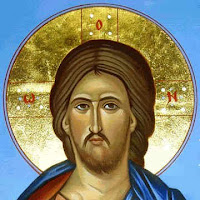Pittsburgh: Bishop Duncan opened the Network Council meeting with a wide-ranging address on past ministry and future direction of the ACN.
Excerpt:
"We are gathered for the Third Network Council, and we have come a very long way. The first and chartering Council met at Christ Church, Plano, Diocese of Dallas, in January of 2004. The second Council met at St. Vincent’s Cathedral, Bedford, Diocese of Fort Worth, in April of 2005. Now we meet at Pittsburgh in July/August 2006. In some measure, all of these Councils have been about a reformation of behavior.
Many who are gathered here will recall the extraordinary manner of decision making employed at the Plano Council. We operated as bishops, priests and laity together. We operated as a unicameral assembly. Diocese by diocese we reached consensus, and even unanimity: every article of the charter was adopted without final dissent, even though there were difficult and, at times, even painful, debates. I have never in my whole life presided over a gathering that was so obviously under the Holy Spirit’s sovereign sway. Do you remember the moment when we agreed to respect one another in our differences about the ordination of women? Thirty years of bitter division slipped away and we stood and sang the Doxology. This was a reformation of behavior: a national assembly meeting and deciding in a manner reflecting what we see in Acts 15.
At our Bedford Council we spent nearly all our energies on mission, both domestic and foreign. The leaders of the various mission agencies, who are gathered in Anglican Global Mission Partners, could scarcely believe that we were actually committed to giving so much attention to Jesus’ charter to his Church in Matthew 28. Yes, it is true, this Second Council fell back into old patterns as we attempted to draft a “Windsor Covenant,” but the dominant focus on mission in the gathering was another significant reformation of corporate behavior.
This Pittsburgh Council is about many things, all of which have to do with the Network’s defining vision of a “biblical, missionary and united Anglicanism in North America.” The are many practicalities to attend to: elections, funding, relations with our Common Cause partners; children and youth initiatives, church planting developments, global missionary efforts; the aftermath of General Convention, Network-wide anxieties, significant actions in response; a coherent path-forward through the tumult and uncertainty of this next chapter of our lives as faithful Anglicans in a hostile domestic environment. But as your leader, your Network Moderator, as I enter this third year of what our Charter spells out to be an initial three-year term, I have no greater hope for this meeting than that the embrace of this reformation of behavior will have been, and will ever-increasingly be, our hallmark. “How those Christians love one another!”… “How they love their Lord!”… “How they sacrifice for the good of the world!”
Another significant excerpt:
"Just days ago the vestries of St Stephen’s Anglican Church, St. Charles Anglican Church and St. Stephen’s Episcopal Church, finalized an agreement with the Diocese of Olympia, an agreement that I believe all would hail as “based on fairness, equity and Christian principles.” In the Diocese of Virginia, a group of parishes and missions, led by the venerable (they date to the period of the American colonies) parishes of Falls Church and Truro Church – a group of congregations larger in number than the number of congregations of at least a dozen American Dioceses – has begun a season of “forty days of discernment” to pray about their future. We applaud these developments. We encourage those Dioceses engaged in lawsuits with their parishes, and vice versa, to embrace this “more excellent” way.
In the short-run these negotiated settlements, as in the case of the Washington State congregations, may lead to rescue and oversight by a Province of the Global South. In the longer run, there is no question that these congregations will form the nucleus of new missionary dioceses in union with the Network Dioceses (“enduring ECUSA”) and in partnership with the jurisdictions of Common Cause, as the vision of a biblical, missionary and united Anglicanism in North America – in God’s time – becomes a reality, and as “innovating ECUSA” fades away.
Full text here

0 Comments:
Post a Comment
<< Home